A guest post by Adria Laycraft.
How do you decide what constitutes the best writing out there? ‘Best’ is so subjective. Some love the endless descriptive prose of Tolkien and others go to sleep. Guy Kay is by far one of my favourites for beautiful writing, but again some just can’t get into his style. Some love to devour long series and hate short fiction, other relish the small bites and can’t settle into anything over novella length. Then there are the stories we all seem to agree on, and that makes a hit. So what qualifies as the best?
We could decide that the best are the ones who made it big–Rowling, King, and Martin, for example. While they often get criticized for prose blunders or formulaic writing or ignoring deadlines, they must be the ‘best’ if they’re the household names with heavy pocketbooks, right?
Or we could look at best as award-winning–Robert J. Sawyer is the only Canadian to ever win the Hugo, the Campbell, and the Nebula. He’s also lost far more Auroras than he’s won, as he often jokes, but he still has quite a few. So does that make his writing the best?
Or we could look at critical acclaim, high-rated reviews, whatever criteria we want. My point is, who decides what’s best? How do you define the word? And, more importantly, which kind of best are you personally striving for? It’s good to consider what constitutes the best in your own viewpoint when you think about where you want your writing to lead you. Winning contests might require a different mindset and writing style than earning rave literary reviews.
All I can give you is my own version of ‘best’, of course.
In my opinion the best writing fills the reader with a sense of awe and creates emotion in the reader. How does the line go? If the author’s not crying, the reader’s not crying.
When I’m reading as an editor, it’s not that I demand to be made to cry, but I’d better be feeling something along the way. This is why you might see a rejection letter saying, “We like your work but don’t feel we can get behind this piece in particular. Please continue to submit in the future.” The plotline is there, the prose is acceptable … those editors are just hoping you will hit the emotional mark at some point in your practice as a writer.
I love stories that catch me up with mystery and magic, and weave it together with threads of perfect description, subtext in foreshadowing, and plot twists that deeply affect the characters. They pull me along with those believable and adorable pretend people that we will never forget. The characters have to mean something to the reader for any story to fly, and the ‘best’ in my opinion make an art of this. My favourite examples include Frodo and Sam, Harry Potter, Katniss, House Stark, and Jilly Coppercorn of Newford (a place that becomes a character in its own right.)
What I see as the best writing is the kind that builds loyal readers that trust the author to deliver that same emotion again and again but always with fresh new stories. These are the authors that readers seek out on purpose.
There are far too many to ever do justice to here. Some fine examples I recommend studying include Patricia A. McKillip for the way she weaves fairy tales for a modern reader, or Charles de Lint for his mythical urban fantasy that allows us into the raw emotion of street life, or Guy Gavriel Kay for his lyrical historical fantasy that uses language and subtext and poetry to create incredible vistas of literary landscapes. Some newer finds for me include Michelle Sagara (try out her book Silence for a real emotional punch), and Maggie Stiefvater (The Raven Boys), for a teenage viewpoint that doesn’t feel juvenile. All of these authors made an emotional impact on me.
So my ‘best’ has less to do with perfect prose, and more to do with story impact. Don’t get me wrong … I love it when word choice and rhythm all come together to make the story sing. But it’s meaningless to me if there is no emotional connection beyond the pretty words.
All we can do as authors is to write stories that matter to us. When what we’re writing matters, the emotions rise up, and the reader can feel it. No matter what else you might do right or wrong, I believe that’s the key to the best stories.
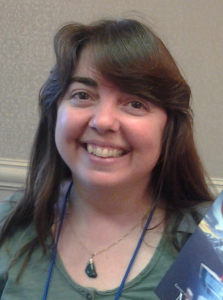 Adria Laycraft is a grateful member of IFWA and a proud survivor of the Odyssey Writers Workshop. She co-edited Urban Green Man, which launched in August of 2013 and was nominated for an Aurora Award. Look for her stories in Card’s IGMS, the Third Flatiron Anthology Abbreviated Epics, the FAE Anthology, Tesseracts 16, Neo-opsis, On-Spec, James Gunn’s Ad Astra, and Hypersonic Tales, among others. Author of Be a Freelance Writer Now, Adria lives and works in Calgary as a freelance writer and editor. Visit her at: http://adrialaycraft.com/
Adria Laycraft is a grateful member of IFWA and a proud survivor of the Odyssey Writers Workshop. She co-edited Urban Green Man, which launched in August of 2013 and was nominated for an Aurora Award. Look for her stories in Card’s IGMS, the Third Flatiron Anthology Abbreviated Epics, the FAE Anthology, Tesseracts 16, Neo-opsis, On-Spec, James Gunn’s Ad Astra, and Hypersonic Tales, among others. Author of Be a Freelance Writer Now, Adria lives and works in Calgary as a freelance writer and editor. Visit her at: http://adrialaycraft.com/


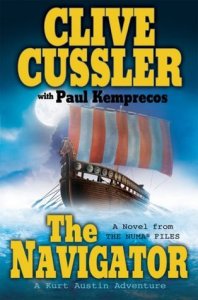
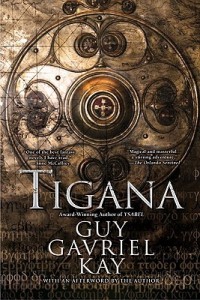
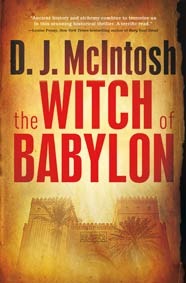

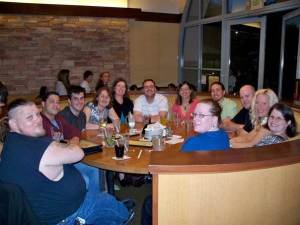 Okay, as for the other questions. What is
Okay, as for the other questions. What is 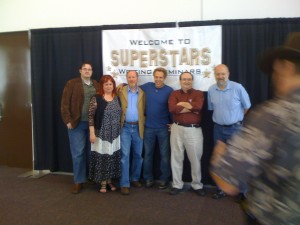 Who? Anyone who hasn’t attended SSWS in past years is eligible to apply for the scholarship. The instructors are
Who? Anyone who hasn’t attended SSWS in past years is eligible to apply for the scholarship. The instructors are 

 That is a rare camaraderie to have with a group this size, but it’s there and it’s precious.
That is a rare camaraderie to have with a group this size, but it’s there and it’s precious.